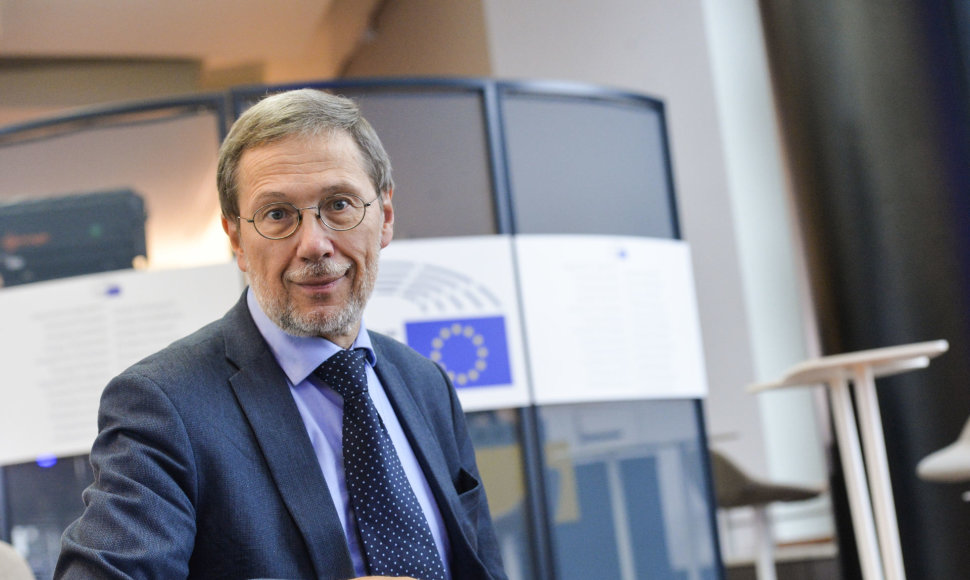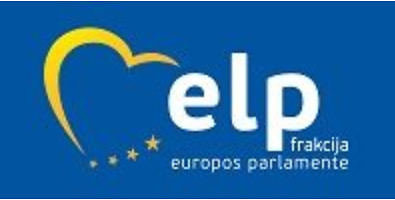First, we found out about the initiatives of individual countries. Soon after, we also heard about coordinated actions by EU institutions. Several weeks ago, the Union’s countries began to demonstrate exceptional mutual solidarity as well. Take how in Germany, at intensive care departments, treatment is performed on severely ill patients from Italy and France. Lithuania has also sent aid to Italy and Spain.
What resources have been allocated to containing the crisis in the EU?
An exceptional European Parliament sitting held on March 30 (held remotely for the first time in history) clearly demonstrated undeniable European unity. During it, we discussed and approved with a vast majority a series of specific decisions. One of the most important of these is the Corona Response investment initiative. It seeks to direct 37 billion euro of available EU funding as soon as possible to citizens, regions and countries, which have been most impacted by the novel coronavirus pandemic. The funds are to be allocated to healthcare systems, small and medium-sized businesses, labour markets and other vulnerable parts of EU member states’ economies. 1.5 billion euro of this sum is being allocated to Lithuania.
Also, the EU Solidarity Fund is being expanded to help overcome critical public health situations. The most impacted countries will be able to request support for up to 800 million euro. I am particularly in favour of this decision – after all, until now, the EU was not in a rush to perceive healthcare as a common priority area, with this being the remit of member states.
During the plenary sitting, many MEPs emphasised the necessity of continued free movement of goods within the EU. For assurance, already on March 23, the European Commission declared guidelines for member states on how to manage border control. In order to ensure that all supply chains could continue operating, member states were asked to immediately assign all trans-European transport network internal border crossing points as green corridor border crossing points. They ensure rapid and uninterrupted delivery of goods. The Green Corridor crossing points are open to all cargo vehicles, regardless of the goods they are transporting and the crossing of the border, including all necessary checks, is to last no longer than 15 minutes.
The COVID-19 pandemic has reminded Europe of the importance of coordinated actions and cooperation. The European People’s Party group I represent in the European Parliament has taken on a leadership role in the face of the coronavirus pandemic. At the initiative of all of us, on April 7, a wide-ranging European solidarity pact was approved. It is comprised of immediate measures to combat the virus and to focus already existing EU measures. This solidarity pact emphasises five key actions, which must be achieved: direct cooperation of national healthcare systems, coordinated European social cohesion measures during the coronavirus, increased security of strategic infrastructure such as the internet, energy and food supplies; economic measures to restore the economy following the pandemic and the comprehension of long-term lessons, which must be learnt based on the current crisis (for example, returning production of pharmaceuticals to Europe).
Seeking long-term cohesion: no less than 2.7 trillion euro for overcoming the crisis’ consequences
In order to comprehend the scale of the need for European finance, let’s first open up an arithmetic guidebook and practice. The concept of “million” is well understood by us. A billion? That’s a thousand million. What of a trillion? That’s a thousand billion. So then, calculating in thousands of billions, how much is Europe planning to allocate to handle the consequences of COVID-19? Let’s count and we will see the scale of European solidarity not only in live examples, but also specific, massive by the way, numbers!
We won’t reiterate about the 37 billion (That’s only 0.037 of a trillion, by the way). Next is the SURE instrument, which is a necessary support for the retention of jobs. Its scale is 100 billion (0.1 trillion). The sum still needs to be approved. The measures announced by the European Central Bank – 750 billion euro for state loans. There are discussions of another 500 billion euro based on the European Stability Mechanism, which has outlined the possibility of borrowing such a sum already back in 2012. In total – we are nearing 1.5 trillion. To this sum, we must also add on the financial measures planned by individual countries themselves. They are also associated with borrowing and it is hard to sum them up. The Multi-Annual Financial Framework also has not been arranged yet, the “frame” for the budget over the coming seven years. There will still be long discussions on the specific numbers for it. Nevertheless, its sum will “Hover” around 1% of the EU’s GDP and what part of it can be allocated to containing the consequences of the pandemic has yet to become clear. Of course, the countries, which are suffering from COVID-19, will have to borrow. In regard to loan return guarantees – whether the states themselves of the entire EU should guarantee the return Is still a matter of political discussion.
It could be that the most suitable solution might be corona bonds – joint borrowing by all 19 members of the Eurozone. A joint borrowing mechanism could be created relatively easily, however, the political decisions to voluntarily accept the debt of other member states are not easy. Spain, Italy, France and several other countries are requesting for the immediate release of corona bonds. This has been met with pushback from the “thrifty” four: Germany, the Netherlands, Austria and Finland. Lithuanian Minister of Finance V. Šapoka has expressed the opinion that Lithuania is currently borrowing more affordably, however, Lithuanian President G. Nausėda supports the idea of joint bonds. Corona bonds could have the highest credit rating, however, this would require granting the European Union even more authority to oversee the fiscal discipline of member states. It is crucial that in releasing such bonds, Europe would show it is sharing the burden and that it is unified.
Whatever the case, currently, it is not easy to “present” a clear joint sum for combatting the consequences of the coronavirus. In either case, it will exceed 2.7 trillion (2,700 billion) euro. This support is segmented and aimed in various directions in order to allocate it to as wide a number of those in need as possible: member state governments, small and medium-sized companies, staff and others.
Thus, during the upcoming EP plenary session on April 16-17, crucial decisions await once again.













